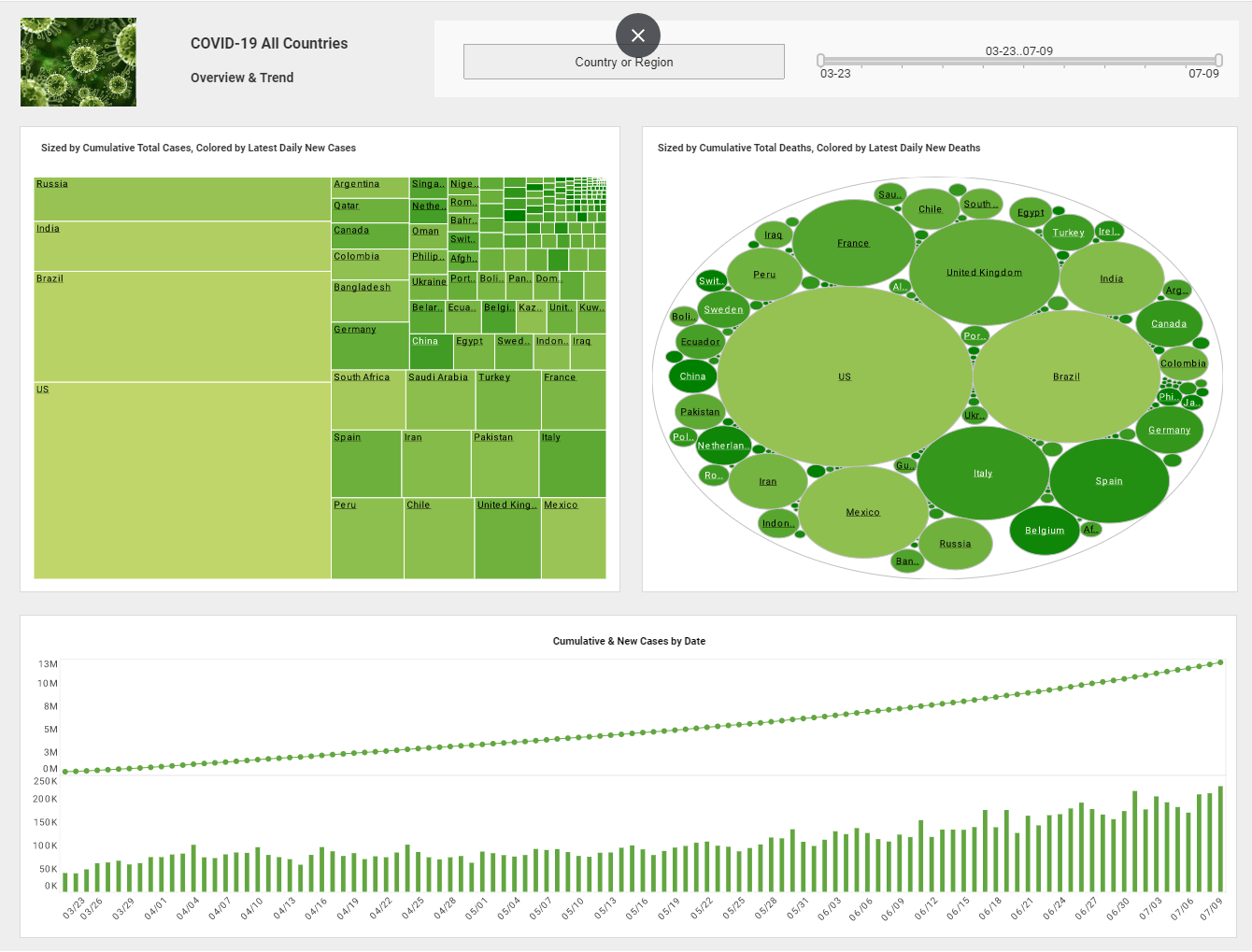Why Big Data Analytics Is So Important In Government
This is the transcript of a podcast hosted by InetSoft on the topic of "Why Big Data Analytics Is So Important In Government." The speaker is Mark Flaherty, CMO at InetSoft.
Today we’re going to talk about why big data analytics is so important in government globally, and especially in this economy. Commercial industry has been using data. The FedEx’s, the Wal-Mart’s, companies are really taking advantage of using their data, viewing it as an asset, making better decisions, faster decisions, and responding to shifts in the marketplace.
Certainly in today’s environment the government is very interested in trying to do those same things. Budgets are shrinking. There are shortfalls in revenue. They just have to get smarter and better at what their doing. The Obama administration is out there promoting transparency, promoting visibility into what the government does, how they spend their money, the decisions they are making, and passing to on to every single citizen. So what they are doing today to put that in front, increase that visibility, make better decisions around policy, understand the direction of the country, itself, is very critical.
In terms of where in the government the move towards better analytics is taking place, it’s in the financial departments of the various agencies. They are leading the way in terms of increasing that visibility of spending levels. Also, with healthcare reform, there is interest in knowing what is happening with costs and the aging population.
| #1 Ranking: Read how InetSoft was rated #1 for user adoption in G2's user survey-based index | Read More |
Analytic Tools for Government Decision-making
It’s driving a lot of decisions that the government has to make, hard decisions. And we want to make sure they are the right decisions because they are going to impact our future. We are also working with a lot of states who are working on tax compliance solutions. For instance, I read where over the past fifteen years a combination of five states were able to collect $1.5B more because of good analytics.
With modern analytic tools, they were able to identify non-compliant tax filers. I know that as a taxpayer, myself, I am happy that they are going after those non-compliant filers because that way everybody pays their fair share and it keeps the tax burden on the rest of us lower.
Every government agency is being asked to do more with less. Logistics is another interesting area. For instance, Transcom became an information center, an information agency, to find that efficiency in the supply chain and to streamline it. For example, some field personnel used to order additional supplies as insurance because they didn’t have that visibility into the supply chain. So if they needed one item, they would triple it, or even order five times as many items because they knew they would at least get the one by doing that.
By making the order status information available, they were able to take out all of the excess in that supply chain. One of the measurements they took was that they were able to take out $565M out of the DOD supply chain as a result of providing that information back out to the field.
With transparency, the government, and all companies really, tend to create silos of data across the organizations. And the government is no different. By compiling, aggregating, and integrating all of that data together into one single source of the truth, you’re able to get that visibility, create that transparency, and then display or present it back to the public, which is the goal of the Obama administration. Data quality and data management are so key and so critical in that sort of an environment because you don’t want to put the wrong data out there. Being able to understand the data, what it is, and create that transparency.
 |
View live interactive examples in InetSoft's dashboard and visualization gallery. |
Government Data Is Huge
The data the government has is so huge. It dwarfs what you see on the commercial side. So you talk about big data. Well, the government has huge data. The government is massive. They are big generators of data. They are big compilers of data that has been used in the commercial word for research, for making policy decisions within the government. So there is so much that is being done and can be done by getting that information in the hands of the people that need to make the right decisions.


